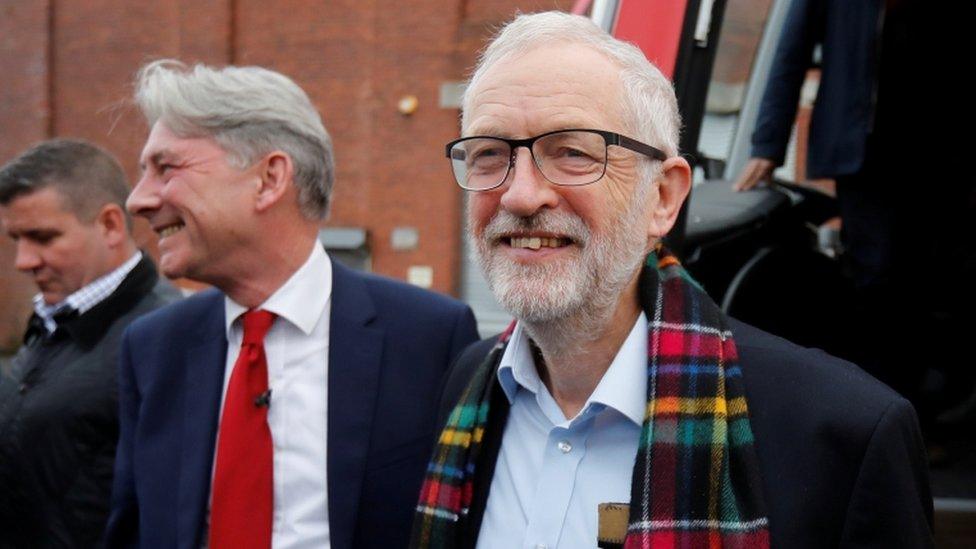What comes first for the SNP - indyref2 or a People's Vote?
- Published
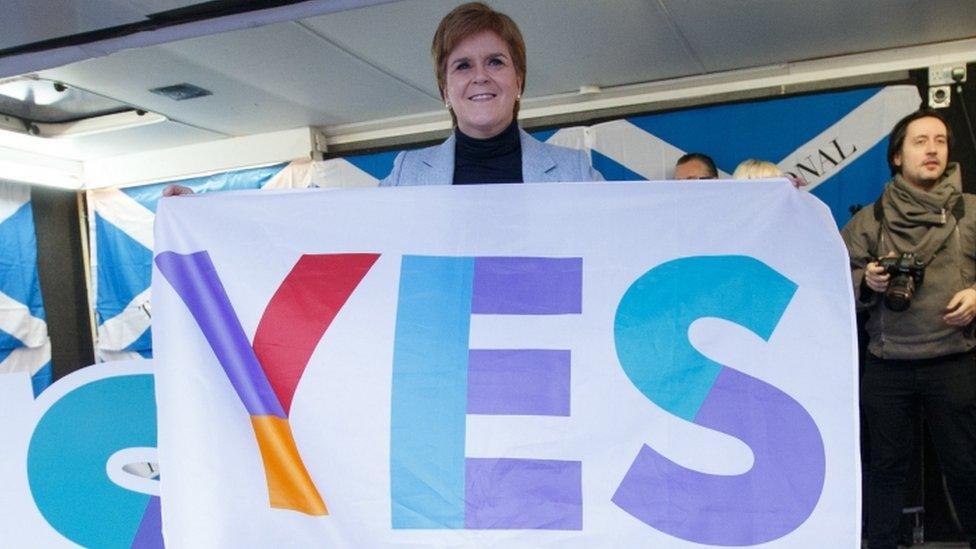
Does Nicola Sturgeon want a referendum next year? You'll never guess the answer
And there arose Jackson Carlaw, assuming the solemn guise of a prosecuting counsel. The charge sheet?
That the first minister, residing at 6 Charlotte Square in the city of Edinburgh, did wilfully and with malice aforethought seek to inflict not just a further Brexit referendum upon the people of Scotland - but also another ballot, anent the topic of independence.
The response from Sturgeon, N? "I'm rumbled!" Which might be thought to be the droll, satirical equivalent of "it's a fair cop, you got me bang to rights."
Or whatever patois is deployed these days by modern, trendy felons engaged in their felonious little plans. Presumably, it is a mid-Atlantic drawl, where every sentence starts with the word "so" and every utterance ends on an up note.
The FM's satire, of course, was deployed in a familiar pursuit. It would not, she surmised, come as a surprise to many that she was pretty keen, all things considered, on Scotland gaining her independence.
But Carlaw QC was far from done. If she had to choose between a Brexit plebiscite and indyref2, which would she choose? Which would be her priority?
Ms Sturgeon opted for indyref2. Twice, because the question was repeated (everything is on a loop in these Brexit, electioneering days).
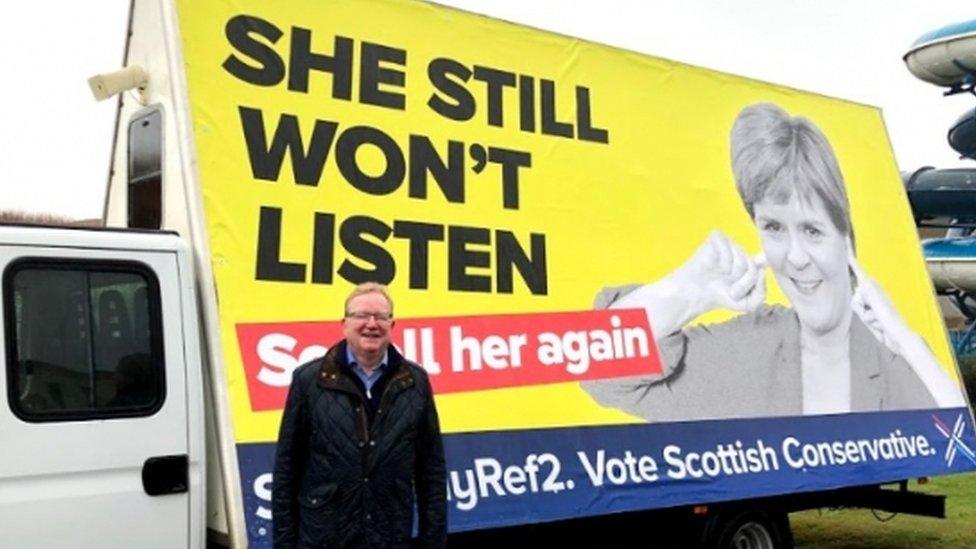
Talk of independence is also music to the ears of Jackson Carlaw and the Scottish Tory campaign
Which raised a wheen of further questions - at least, it did so in the minds of Ms Sturgeon's political rivals.
Aha, exclaimed Mr Carlaw, like a stage character, vigorously wiping his copious moustache and deftly flicking an imaginary speck of dust from his immaculate cuffs.
(OK, so he didn't - just couldn't resist the panto imagery. It is nearing Christmas after all, despite the best efforts of our campaigning politicians.)
Aha. The First Minister has just conceded that her only aim is independence. She has no real interest in Brexit.
Willie Rennie of the Liberal Democrats piled in later, via a statement. Ms Sturgeon, seemingly, had abandoned Remain voters in the rest of the UK.
And Labour? They are still somewhat preoccupied translating Jeremy Corbyn's latest pronouncements upon when, as PM, he would be prepared to sanction indyref2.
You'll recall that, in Glasgow yesterday, he was ruling out such a plebiscite in the first term of a Labour government. In short, a five year period.
Later, yesterday, he spoke to me in Blantyre Miners Welfare Social Club (to whom huge thanks for such a warm welcome, particularly when the place was overwhelmingly busy with gregarious lunchers and a group of visiting nuns. Not sure what the collective name for nuns might be - a habit?).
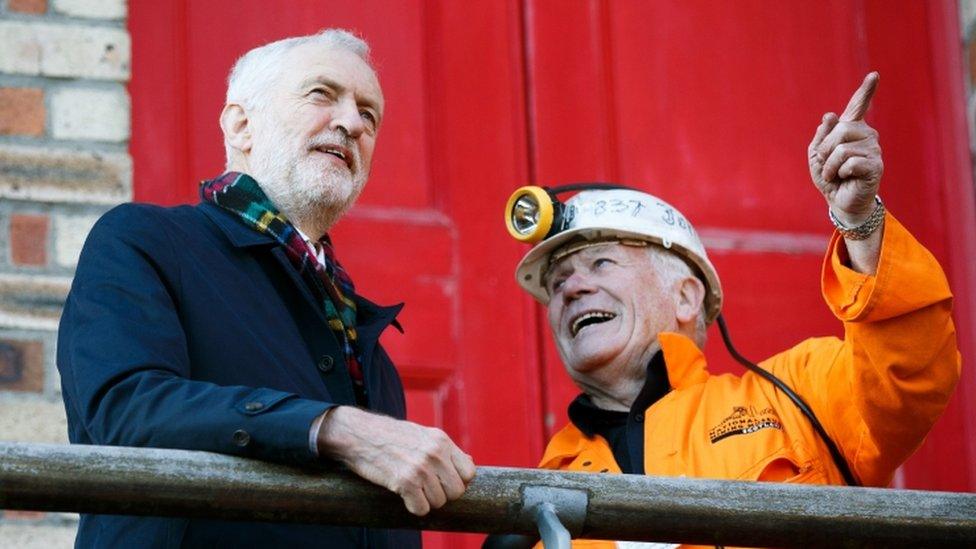
Jeremy Corbyn has faced a few questions about indyref2 while in Scotland - and has given a few different answers
Anyway, Mr Corbyn suggested to me there that he wouldn't sanction a referendum on independence in the early years of a UK Labour government.
Today, in the great and noble city of Dundee, he was asked again (the wicked media are nothing, if not persistent). Now, the slightly revised verdict is that such a sanction would not be contemplated in the first two years of governing.
And this vacillation matters why? One, because Mr Corbyn is seeking to be prime minister - and decisions over the constitution are reserved to Westminster. Two, because voters tend to prefer certainty from their elected tribunes. Unfair, I know, but there it is.
I understand Labour's grievance: they want to talk about their policies on poverty - and are frustrated by endless questions about the constitution.
From my experience, such issues do not go away until they are closed down. Firmly. With a definitive answer (actually, sometimes not even then, but these things...)
Just ask the Scottish Tories. They had a big problem with their stance on Brexit (many would say they still do, but humour me).
Snag was that the Scottish party was still trying to mitigate Brexit, to lessen its impact, when the new prime minister, Boris Johnson, had ruled that Brexit must be pursued, with vigour, particularly when he had negotiated a new deal.
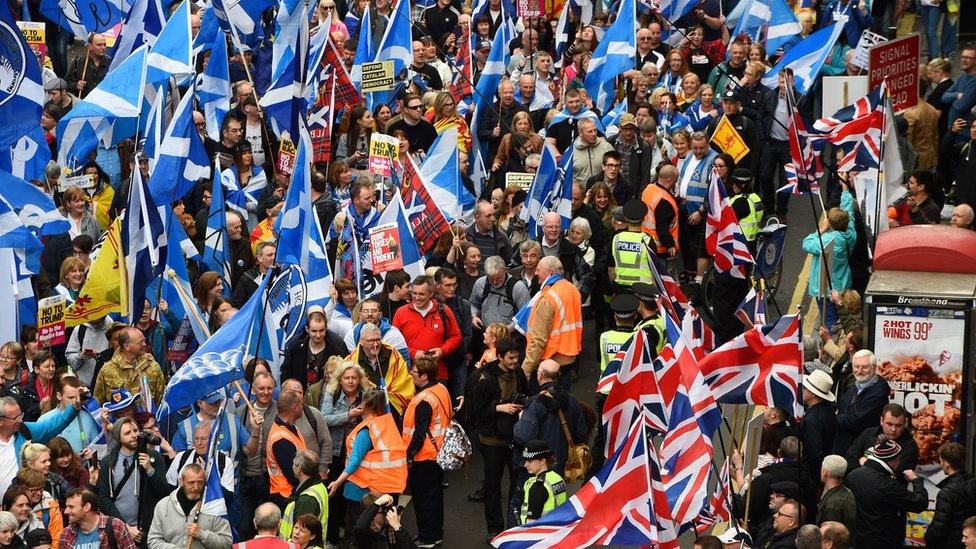
Jackson Carlaw resolved this dilemma. He declared that the Scottish party was now lining up behind the PM. You can call that pusillanimous surrender - his opponents do. Or you can call it pragmatic politics - a recognition where real power lies in Conservative circles.
Either way, it has given Mr Carlaw a narrative for the many, many doorsteps he has already pounded in this contest.
On Brexit? Just get it done. Ok, ok, so you don't like it much. Listen, I wasn't all that keen at an earlier stage. But don't you just want it behind us?
But they go further, moving onto indyref2 territory. Where they also have a firm response, one of rather longer pedigree. They're agin it. No to independence. No to indyref2.
They seek to persuade those who are inclined towards the Union to lend their votes to the Conservative and, as they always add, Unionist Party. One of Mr Carlaw's chums, Annie Wells MSP, even argued, with disarming clarity, that folk didn't have to say they were Tory. They just had to vote that way this time.
All of which, Tory strategists reckon, gives them a hearing in an election contest which, voters know, is about two overwhelming issues, Brexit and independence.
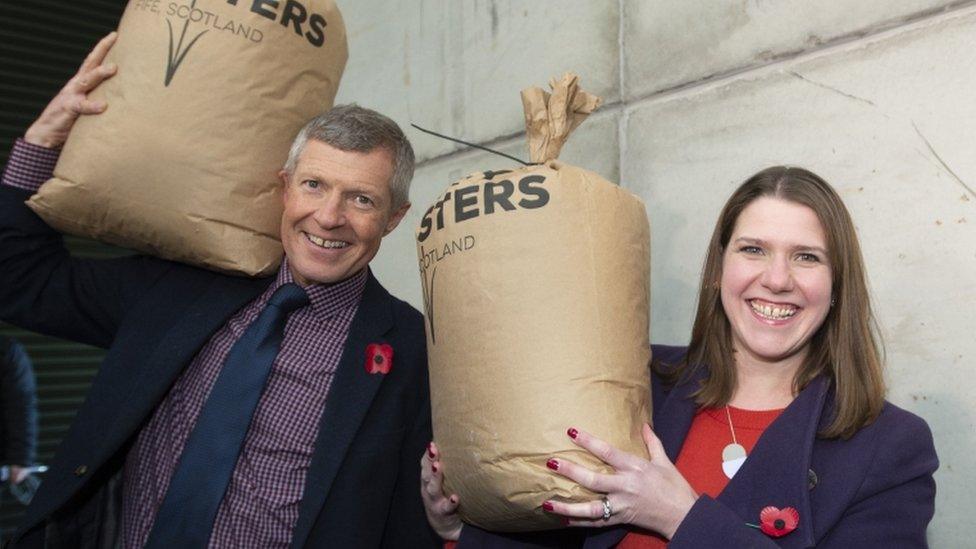
The Lib Dems fear they could be left to do the heavy lifting when it comes to opposing Brexit
But back to Ms Sturgeon's preference for indyref2 over a second Brexit referendum. Are there real, practical consequences arising from that?
Firstly, does it mean - as the Lib Dems attest - that the SNP has given up on the prospect of keeping the entire UK in the European Union, in line with the wishes of Remain voters?
Team Sturgeon say: absolutely not. They say they will continue to pursue all avenues, within the new House of Commons and elsewhere for the UK to remain within the EU. They believe that to be in Scotland's broader interests.
But they say further that Scotland cannot afford to wait, endlessly, upon a timetable dictated by the UK Parliament. Scotland, they argue, must be enabled to choose.
Talking to other senior Nationalists, a slightly nuanced version of that emerges. Some feel just a little queasy aligning themselves too closely to the pro-Remain Lib Dems - now that they have declared they are ready to revoke Brexit entirely, without a further referendum.
OK, so they would only do that in the statistically unlikely circumstances that the Lib Dems achieve an overall majority in the Commons, installing Jo Swinson as PM. And they insist that it demonstrates the strength of their opposition to Brexit, not in any way a disinclination to follow democracy.
But still. Nationalists know they cannot afford to be too zealous in pursuit of Remain, not least because a fair number of independence supporters are less than keen on the EU.
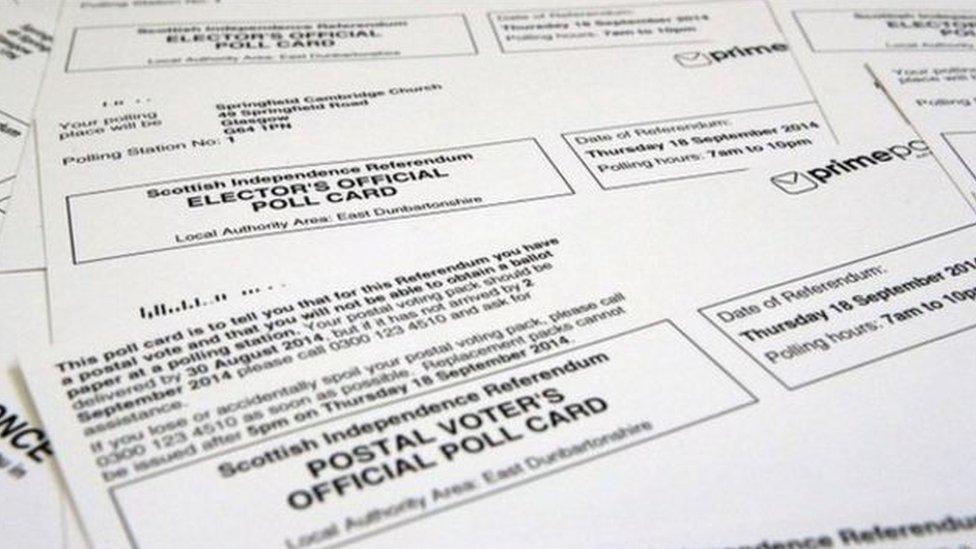
Secondly, Nationalists have to work with the prospect that a second Brexit referendum is far from guaranteed.
That calculation arises from a range of factors, previously set out on this site. Voter weariness, an inchoate sense of an emerging Brexit end game. Those elements, and the opinion polls which suggest that the Tories are better placed to win UK power than Labour (who are promising a second Brexit ballot in which they would posit Remain against their new "sensible" deal, yet to be struck with a reluctant EU).
If, these strategists say, a second Brexit referendum is vanishing from sight, to some extent. I stress, "to some extent". Then it is important to the SNP that indyref2 does not vanish with it.
Which is why the SNP has taken care to distinguish the two. Which is why Nicola Sturgeon stated her preference in the way she did.
Then timing. Did the SNP not previously indicate that they wanted "clarity" over Brexit, before they would contemplate indyref2? They did, indeed.
That remains among the reasons why they seek indyref2 at the end of 2020, rather than next week or next month. Among the reasons.
But the narrative has now changed, a little. Now, they say that Brexit will not be done in the short term. Even if Boris Johnson's deal is endorsed. There will be trade talks, probably protracted. This will, to echo Margaret Thatcher in very different circumstances, go on and on.
In which case, say SNP thinkers, it is again wrong to hook Scotland's prospects to negotiations and a timetable driven by the UK/EU and thus beyond the direct influence of Scottish political leaders.
Hence, again, today's choice by the first minister.
- Published14 November 2019
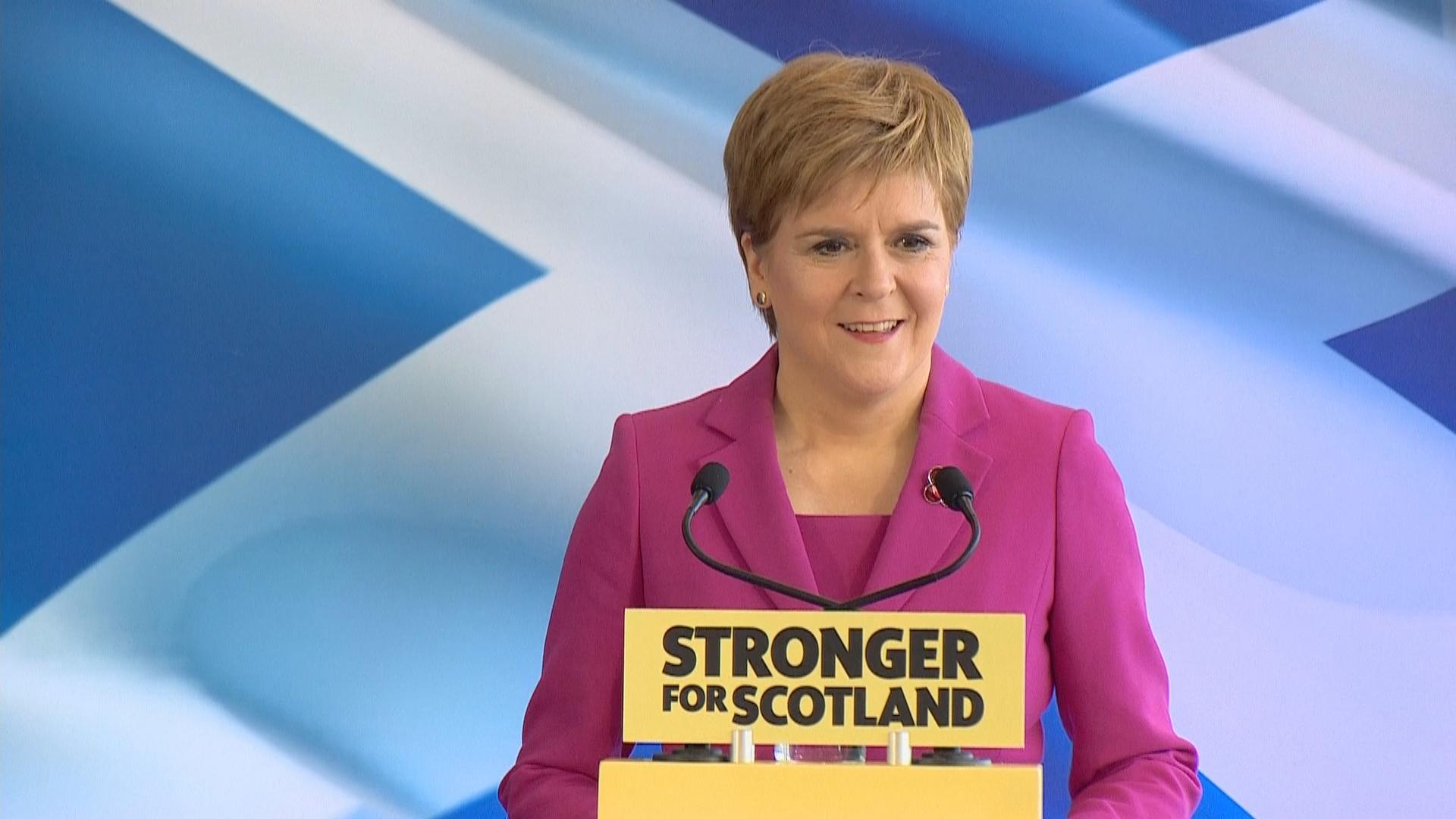
- Published13 November 2019
